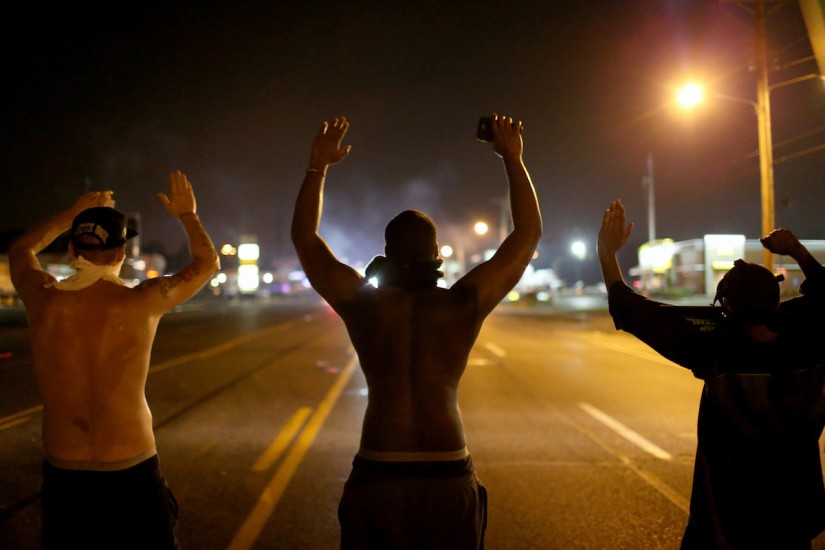For nearly three quarters of a century, thousands of black people, including over 100 black women, were lynched in the presence of or with the complicity of law enforcement. Not only could blacks not testify in prosecutions against whites, local officials often refused to indict, lying in the official record that the victim died “at the hands of parties unknown.” Lynching postcards sold as souvenirs told a different story.
Stranger Fruits tarts with an affirmation of Michael Brown’s humanity and builds on a history of racial terror. The Ferguson police department’s well-documented occupation of the black community is the crucial context for assessing inconsistent police statements and the physical evidence. As Holiday sings:
Here is fruit for the crows to pluck
For the rain to gather, for the wind to suck
For the sun to rot, for the trees to drop
Here is a strange and bitter crop
In 1955, Mamie Till allowed the nation to see the mutilated remains of her lynched teenage son, Emmett Till. No one was convicted. Fifty years later, Keith Beauchamp’s documentary, The Untold Story of Emmett Louis Till, uncovered evidence that Till’s accuser Carolyn Bryant had lied. Although too much time had elapsed for Bryant to face prosecution, that film led to the passage of the Emmett Till Unsolved Civil Rights Crimes Act.
It is not too late with Pollock’s film.
The documentary starts with an affirmation of Michael Brown’s humanity and builds on a history of racial terror.
The arc of history that connects lynching’s past to policing’s present runs through the bodies of black unarmed men, women, and children—Eric Garner, Sandra Bland, Tamir Rice—whose names might one day be added to the weathered steel columns of the new National Memorial.
Michael Brown is already there: A 10-foot sculpture of a bullet-ridden, disfigured body, titled BAM (For Michael)by the artist Sanford Biggers, stands at the exit of the Legacy Museum.
Lezley McSpadden, Brown’s mother, plans to run for Ferguson’s City Council this fall. She insists—as the work of Biggers and Pollock does—that this moment is not just about Americans’ desperate need to reckon with the past. It is also about pursuing justice now and in the future.
